Undergraduate Research
Welcome to the Pathogen and Microbiome Institute (PMI) undergraduate research program webpage. Students in our program work on exciting biological research projects under the careful mentorship from faculty (professors) and staff scientists (see students’ research statements). Students are the frontline data generators, responsible for a large share of data production and analysis at PMI. Their contributions are integral to the success of our research institute. Students present their work in professional conferences and are given co-authorships on publications of manuscripts in recognition for their contribution. Our PMI undergrad research program provides students opportunities to build their professional value through acquiring professional skills (technical, communication, leadership, and organizational) and professional networks. The professional experiences and credentials gained through PMI’s undergrad research program make our graduates highly competitive for advance professional degrees within the scientific research field and outside of research. Many of our graduates go on to receive advanced degrees in medicine, pharmacy, public health, education, and business.

Allen Clarke, Undergraduate Research Assistant Accordion Closed
My name is Allen Clarke, and I am majoring in Computer Science and Mathematics. I have been an undergraduate research assistant at PMI since June 2018, and work under the supervision of Heidie Hornstra O’Neill and the mentorship of Darrin Lemmer at TGen North. I am currently working on implementing a new database to store all of the samples that are sequenced and analyzed at PMI and at TGen North. I work very closely with the Bioinformatics department of TGen North to input data from a Google Sheet (using Javascript) to the new database, which is being implemented in Postgres. I have also been working on improving the functionality of the Google Sheets that PMI uses to input data by writing Google Add-ons to make the sheet more user friendly. This research opportunity has helped me to realize that after I graduate, I want to find a career in Informatics or in Software Engineering.
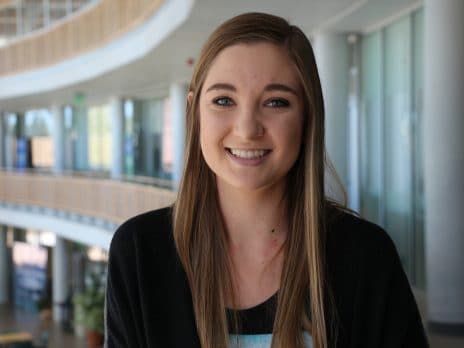
Allyson Hirsch, Undergraduate Research Assistant Accordion Closed
My name is Allyson Hirsch and I am an Undergraduate Research Assistant in the Cope Group here at the Pathogen and Microbiome Institute. I am a senior studying microbiology and chemistry and am set to graduate May 2020! My lab group studies the human microbiome which includes the bacteria, viruses, and fungi living in and on the body. The first project I am working on is researching role that the gut microbiome plays in Alzheimer’s disease development through the gut microbiome-brain axis. Hopefully, this knowledge will be translated to human health in the form of a microbiome-based therapy for Alzheimer’s disease. The second project I am a part of is studying the sinonasal microbiome and the host immune response of chronic rhinosinusitis (CRS) patients with and without asthma. I am planning on pursuing a Ph.D. in Microbiology post-graduation. I am interested in continuing my experience in microbiome research or transitioning to infectious disease research for graduate school. My experience as an Undergraduate Researcher has led me to find a community of similar-minded individuals who share my excitement for research and scientific discovery!
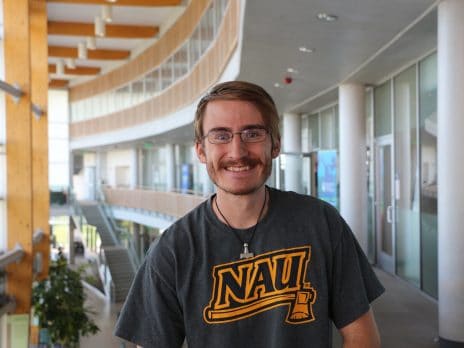
Andrew Wiggins, Undergraduate Research Assistant Accordion Closed
I started at PMI during my junior year and was initially drawn to research due to my broad interest in infectious disease. Since then, I have developed a fascination with how pathogens change and drug resistance evolves. During my time at PMI, I have had the opportunity to study the causative agents of tularemia and plague, which have deepened my interest in molecular biology and phylogenetics. I investigate their genetic patterns to better understand their mutation and transmission pathways. Currently my research is focused on understanding the spread of pneumonic plague outbreaks in Madagascar. We use genetic tools to understand how outbreaks may be related to each other. After PMI I plan to enroll in graduate school to build a career in molecular epidemiology with a focus on emerging infectious disease and antibiotic resistance.
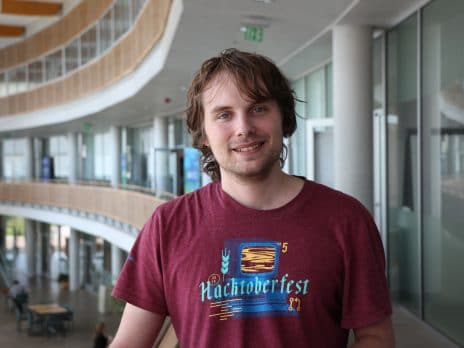
Anthony Simard, Undergraduate Research Assistant Accordion Closed
I am majoring in Computer Science and started working at PMI in May of 2019
immediately after my freshman year ended. I work in the Caporaso Lab group on the
development of the bioinformatics software Qiime2. Qiime2 is based on an easily extensible
framework and plugin model allowing for new functionality to be constantly added in the form of
new plugins managed by the framework. Technically one could create Qiime2 plugins to do just
about anything, but current plugins typically focus on the study of microbial ecosystems. I’m not
sure where I want to end up or what I want to do post graduation, but I am currently interested in
the terrible headaches that are OS development and compiler design.
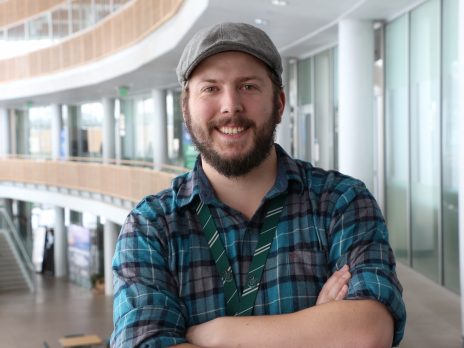
Benjamin Graziano, Undergraduate Office Assistant Accordion Closed
I am a junior currently working toward a Visual Communications degree with an emphasis in Graphic Design. At PMI, I work under the direction of Alyssa Barrett and Debbie Martin in the Finance and Business Operations Core (FBO), the administrative department at PMI. My work involves supporting all of PMI’s research teams with ordering lab supplies from a multitude of scientific vendors. By navigating NAU’s PeopleSoft Financial system and the PMI order board, I routinely create, update, and receive orders on a daily basis. Along with receiving incoming orders and notifying PMI research teams of order arrivals, I manage returning orders and/or contacting suppliers when we receive faulty products. My role also requires me to manage all filing of PMI documents related to grants and contracts, personnel, and invoices. I work to keep PMI databases up-to-date and ensure that invoices and packing slips are in an easy-to-find, easy-to-read format. Alongside these daily office tasks and other tasks such as office upkeep and receiving visitors, I design and create the “PMI Quarterly,” a quarterly newsletter for the department that highlights the ongoing research of many scientific teams at PMI. This newsletter is disseminated to roughly over 500 people.
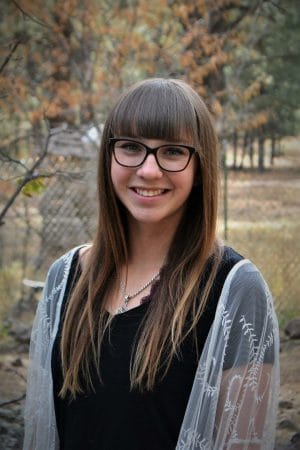
Breezy Brock, Undergraduate Research Assistant Accordion Closed
I am currently a sophomore at NAU pursuing a degree in Biology with a minor in Chemistry. I have worked at PMI since December 2018 under the supervision if Dr. Crystal Hepp and Dr. Viacheslav Fofanov. I participate in various projects studying the movement, evolution, and prevalence of pathogens such as West Nile Virus (WNV), Rabies Virus, Staphylococcus aureus, Streptococcus mutans, and Streptococcus sobrinus. I primarily focus on the circulation of West Nile Virus in southwestern locations of the United Sates with Dr. Hepp. Our extensive genomic analysis of positive mosquito pools suggest that the dominant source of WNV circulating in mosquitoes of Maricopa County is internal, rather than external. Given that Maricopa County appears to be a critical source of WNV for Riverside County, CA, Yuma County, AZ, and Washington County, UT, we hypothesize that Maricopa County is also a WNV source location for additional areas. Future sequencing and phylogenetic efforts will help us predict future spillovers into other southwestern locations. My research experience at PMI has played a critical role in preparing me for a dual veterinary medicine and PhD program to continue my research in zoonotic diseases.
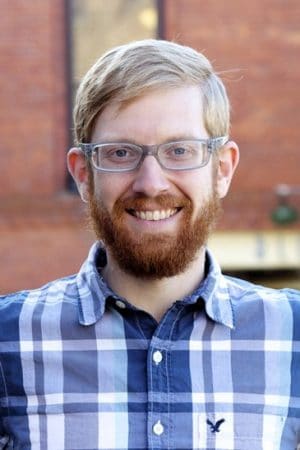
Chris Keefe, Undergraduate Research Assistant Accordion Closed
I am a dual major in Computer Science and Biology, interested in building software tools that provide insights into biological and ecological systems. Working in the Caporaso lab, I am a developer of QIIME 2, a leading microbiome bioinformatics platform. In addition, I am involved with longitudinal and interventional studies on correlations between gut microbiome and the onset and severity of symptoms in mouse models of Alzheimer’s Disease. My role in these studies will be bioinformatics analysis and custom software development in support of those analyses. I’m looking forward to a career built on study and practice, in which the principles and processes of software engineering and biological science support productive development.
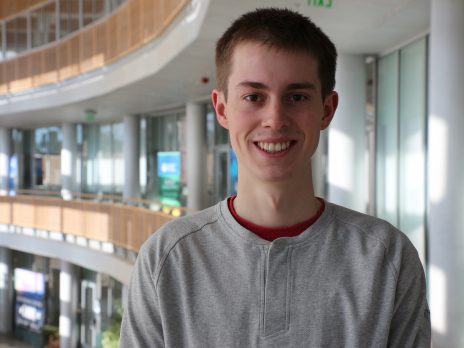
Colin Wood, Undergraduate Research Assistant Accordion Closed
My name is Colin Wood, and I am in my second year here at Northern Arizona University. I’m working towards a Bachelor of Science, with a major in biology, and a minor in chemistry. Under the direction of Shari Kyman and Dr. Talima Pearson, I have been helping to extract, amplify, and sequence the DNA of strains of the bacterium Staphylococcus aureus that were isolated in Yuma, Arizona. This bacterium is a well-known causative agent of many less severe but prevalent illnesses such as skin infections, but can also be to blame for much more serious conditions like bacteremia. S. aureus is also often a cause of food-poisoning. The purpose of our project is to map and understand the transmittance of S. aureus from one person to another in conjunction with the relationship these persons share, and with regard to ethnicity. This information will allow us to understand the types of relationships that are most likely to result in transmission, and will help to prevent recurring infections.
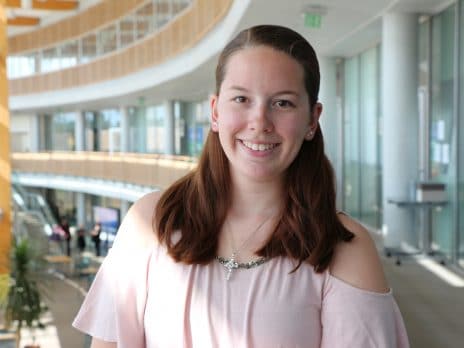
Daryn Erickson, Undergraduate Research Assistant Accordion Closed
My name is Daryn Erickson and I am pursuing a B.S. in Microbiology with a minor in Chemistry. I have been an undergraduate researcher at PMI since June 2017 working under Dr. Crystal Hepp and Dr. Viacheslav Fofanov. In their labs, I am able to work with and study, various pathogens such as, West Nile Virus (WNV), Staphylococcus aureus, Streptococcus mutans, and Streptococcus sobrinus. Our goal when working with these pathogens is to understand their prevalence and movement throughout different populations. For my undergraduate project, I will be examining the Aedes aegypti mosquito population in Maricopa County, AZ. Along with Dr. Hepp, I will determine what types of arboviruses, if any, are circulating within this mosquito population. I will also be testing for insecticide resistance within the same mosquito population. After NAU I plan to pursue a PhD to further study pathogens and pathogen genetics. My dream is to work for the CDC or NIH. I love working in the research field because there is always something new to learn. I love being a part of such a progressive field; a field in which I know I can keep learning and never get bored.
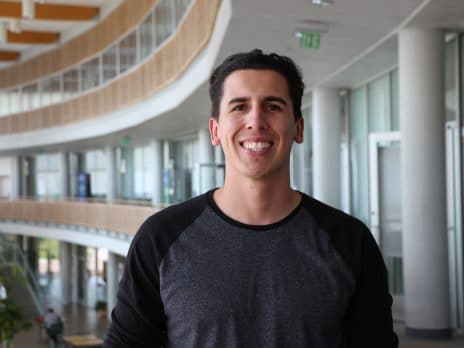
David Rodriguez, Undergraduate Research Assistant Accordion Closed
I am completing a degree in Applied Computer Science as a post-baccalaureate student. I currently work in the Caporaso Lab as a developer and maintainer of the bioinformatics platform QIIME 2. For my research, I am studying and learning about the tools and design patterns necessary to improve and add functionality to the QIIME 2 platform. We support the platform on multiple operating systems using various technologies. The goal for such technological flexibility is to provide a better experience for users and to better serve the bioinformatics community with QIIME 2. My career goal is to become a software engineer once I graduate. I have already learned a variety of new technologies and workflow strategies while working with the software engineering team in Caporaso Lab. I am excited about the growth of bioinformatics as a field and the future of QIIME 2.
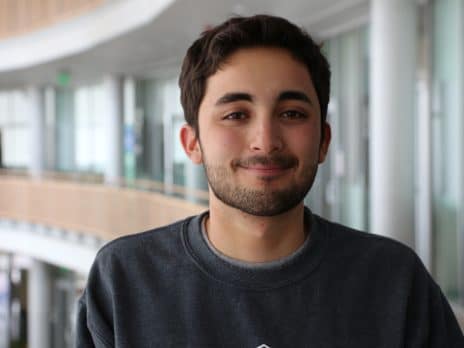
Diego Olivo, Undergraduate Research Assistant Accordion Closed
My name is Diego Olivo and I am pursuing a B.S. in chemistry and biology. I am currently working under Dr. Joseph Mihaljevic as an undergraduate research assistant. For our main experiment, we are analyzing how different temperatures effect Ambystoma tigrinum virus (ATV) . Our goal is to examine and understand how seasonal variation can impact the ATV in tiger salamanders by examining symptoms of those who were infected and extracting viral DNA to quantify the amount present in individuals at varied temperatures from different sites in Arizona. My project examines how the viral shedding rate of ATV is impacted by the temperature differences. With the data extracted, we will hopefully build a mathematical model that would allow us to have a better understanding of the patterns of ATV. PMI has helped me grow as a scientist by teaching me skills and techniques that are required in studying infectious diseases. My plan for my future is to further my education with a graduate program and to pursue a career in genetics.
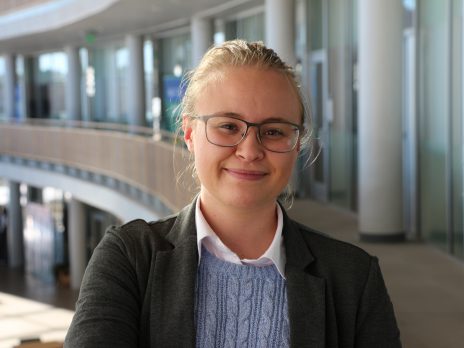
Holland Hoogstad, Undergraduate Office Assistant Accordion Closed
I am a student pursuing a degree in Music Education with an emphasis in Instrumental instruction. At PMI, I work under the direction of Alyssa Barrett and Debbie Martin in the Finance and Business Operations Core (FBO), the administrative department at PMI. My work involves supporting all of PMI’s research teams with ordering lab supplies from a multitude of scientific vendors. By navigating NAU’s PeopleSoft Financial system and the PMI order board, I routinely create, update, and receive orders on a daily basis. Along with receiving incoming orders and notifying PMI research teams of order arrivals, I manage returning orders and/or contacting suppliers when we receive faulty products. My role also requires me to manage all filing of PMI documents related to grants and contracts, personnel, and invoices. I work to keep PMI databases up-to-date and ensure that invoices and packing slips are in an easy-to-find, easy-to-read format. Alongside these daily office tasks and other tasks such as office upkeep and receiving visitors, I am responsible for placing orders using a department business credit card which requires weekly reconciling of all credit card transactions. I also pay over 50 invoices a week for the department, a task which requires me to be detail orientated, have financial/accounting knowledge, and knowledge of NAU’s extensive PeopleSoft Financials system.

Kailee Savage, Undergraduate Research Assistant Accordion Closed
I am pursuing a Bachelor of Science in Microbiology with a minor in Chemistry and started my work here at PMI in June 2019 as a freshman. I work under the mentorship of Dr. David Wagner and Ryelan McDonough. At PMI, I have the opportunity to work with and study various pathogens like Yersinia pestis (causes plague) and Fancisella tularensis (causes tularemia). Currently, I am developing tools to genetically characterize Y. pestis from plague outbreaks in Madagascar. These tools help us understand the transmission patterns of these outbreaks. I have also had the opportunity to genetically characterize an F. tularensis isolate that originated from a patient in Arizona. This characterization helps us to understand the genetic types that persist in Arizona and cause disease in humans. The research that I have been a part of at PMI has been the most rewarding part of my academic career and has convinced me that basic research in biodefense is the right career path for me after I graduate.
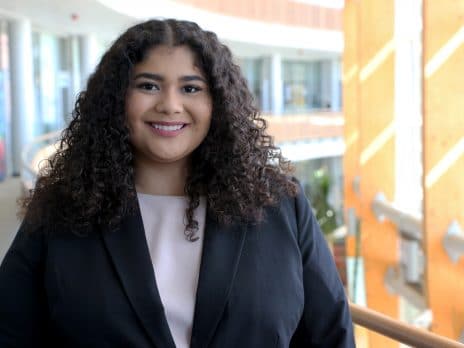
Kaitlyn Parra, Undergraduate Research Assistant Accordion Closed
I am a third year student at NAU pursuing a Bachelor’s in Microbiology with a minor in Chemistry. I work for Dr. Bridget Barker who is a lead researcher in fungal pathogen research. My main project is the characterization of novel Onygenalean fungi. Onygenalean refers to the order, Onygenales, otherwise known as the fungal pathogen order as it contains several known fungal pathogens, such as Coccidioides spp., the causative agent of Valley fever. Since the isolates belong to the understudied order, it is imperative to characterize these isolates and understand their ecological niche, not only to gain insight on the isolates themselves but also the Onygenalean order as a whole in order to understand fungal disease further. Another one of my projects is to help run the Valley Fever PAWS project, which looks at Valley fever in canines though a citizen-science approach to better understand host interactions with disease. My projects and time at PMI has been the best part about my undergraduate experience. I participate in research and develop professionally as a scientist all while still being an undergraduate student! Upon the completion of my undergraduate studies, I plan on matriculating into a PhD program focused on infectious disease research with the dream of becoming a research professor.
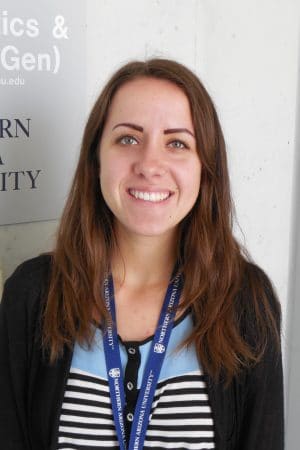
Karisma Kocos, Undergraduate Research Assistant Accordion Closed
My name is Karisma Kocos, and I am working towards a degree in Biomedical Science with a minor in Chemistry. I work on a variety of projects here at PMI, but am currently focusing on comparing two methodologies to determine antibiotic resistance, antibiotic microdilutions and E-Tests, on three different antibiotics for Burkholderia near neighbors. By determining the minimum inhibitory concentration necessary to inhibit the bacteria’s growth, and comparing these values in both techniques, I can discuss which method would be best suited for determining antibiotic resistance in a clinical setting. In addition, the results of this study will provide depth in understanding the antibiotic resistance of Burkholderia species, which can cause devastating human diseases such as Glanders and Melioidosis. As an aspiring Physician Assistant, my research in antibiotic resistance is directly translatable to my professional goals. The research I conduct at PMI fuels my passion to work in the medical field through ground-breaking research and providing the groundwork for me to learn about pathogens and diseases that affect the human body.
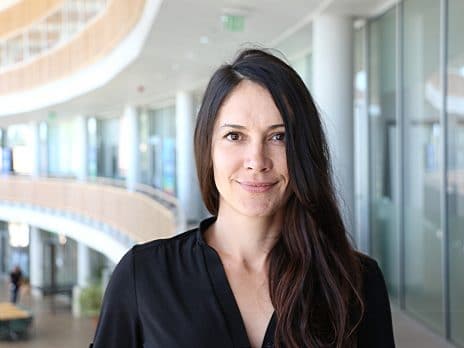
Kathleen Soria, Undergraduate Research Assistant Accordion Closed
I started at PMI during my junior year and was initially drawn to research due to my broad interest in infectious disease. Since then, I have developed a fascination with how pathogens change and drug resistance evolves. During my time at PMI, I have had the opportunity to study the causative agents of tularemia and plague, which have deepened my interest in molecular biology and phylogenetics. I investigate their genetic patterns to better understand their mutation and transmission pathways. Currently my research is focused on understanding the spread of pneumonic plague outbreaks in Madagascar. We use genetic tools to understand how outbreaks may be related to each other. After PMI I plan to enroll in graduate school to build a career in molecular epidemiology with a focus on emerging infectious disease and antibiotic resistance.
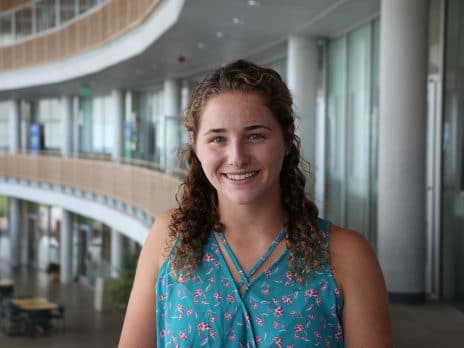
Kathryn Conn, Undergraduate Research Assistant Accordion Closed
My name is Katie and I am currently a Junior at NAU, majoring in microbiology and Spanish with a chemistry minor. I began working at the Pathogen and Microbiome Institute in August of 2019 under the instruction of Dr. Emily Cope. Here, I am studying the microbiome of clinical lung and sinus samples from patients with chronic rhinosinusitis (CRS) patients. The goal of this research is to determine whether the composition or activity of upper and lower respiratory tract microbiota drives inflammation in patients suffering from CRS and asthma. As an Undergraduate Research Assistant, I will be helping with laboratory procedures to define the microbial communities of CRS patients and the roles that these microbes play in human health and disease. The microbiome of CRS patients is poorly understood and this research could someday be implemented in the diagnosis and treatment of this diseases. The time I spend as an Undergraduate Research Assistant in the Cope Group will help me to be successful in my future, where I hope to attend medical school or pursue a graduate degree in microbiology.
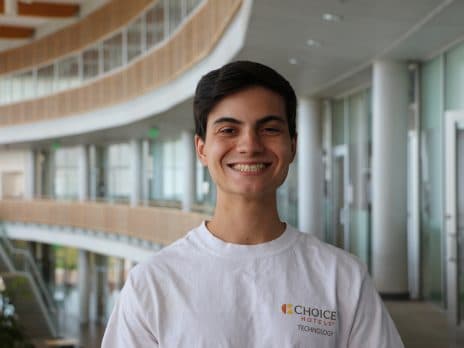
Kieston Guidry, Undergraduate Research Assistant Accordion Closed
I am currently pursing my Bachelors of Science in Biomedical science as well as a minor in chemistry. Since my start at PMI, I have been working on identifying the pathogen Burkholderia pseudomallei, the causative agent of melioidosis, from the environment using the procedure of TaqMan PCR. In doing so, we hope to better characterize the prevalence of this pathogen in the Caribbean in places such as the US Virgin Islands and Puerto Rico. In the future, I hope to further pursue my education with a masters in Physician Assistant studies and become a licensed physician assistant in the state of Arizona. My time at PMI is aiding my journey in providing me with better critical thinking skills, a harder work ethic, and an increased love for science.
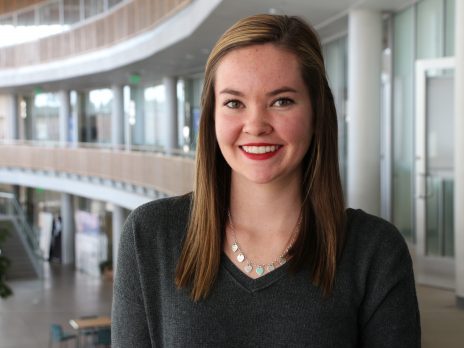
Kristen Kyger, Undergraduate Research Assistant Accordion Closed
I am a sophomore at NAU currently pursuing a Bachelor of Science in Biology with a minor in Chemistry. I have worked at PMI since July 2018 under the supervision of Dr. Jason Sahl and Adam Vazquez. During the short time I have been at PMI, my research has been centered around the analysis and classification of E. coli through our E. coli AmpSeq project. The goal of this project is to create better methods to identify co-infections and track E. coli in urinary tract infections, which allows us to determine strain relationships, antibiotic resistance patterns, and to focus antibiotic therapy. This has lead to an overall better understanding of where these strains are coming from and how to classify them. I would like to take my knowledge and skills obtained at PMI and pursue a career in research, ultimately working for the Centers for Disease Control and Prevention.
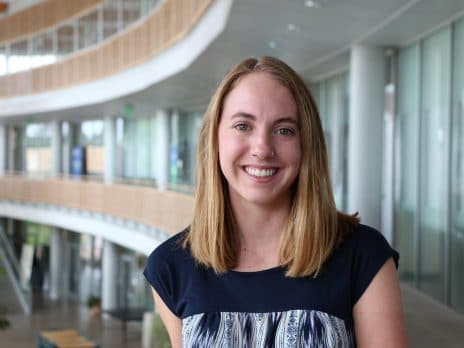
Mackenzie Roberts, Undergraduate Research Assistant Accordion Closed
I am pursuing a degree in public health through the NAU Honors College with minors in French and chemistry. My work, under Drs. Dave Wagner and Joseph Busch, is focused on the southern cattle tick, Rhipicephalus microplus, which transmits cattle fever pathogens. These ticks and pathogens pose a potentially serious economic threat to the U.S. cattle industry because tick infestations are continuously being discovered north of the U.S. border in Texas, presumably originating from Mexico. Control of these ticks is dependent on acaricides, but the continued use of these chemicals has favored genetic mutations in R. microplus that confer resistance. At PMI, I use several types of genetic markers to screen for resistance mutations and track tick movements in Texas. I also sequence genes that are under consideration as anti-tick vaccines for cattle. Identifying variable and conserved regions within these genes will hopefully improve the development of anti-tick vaccines and lead to an alternative method for tick control that does not rely on chemicals. I am utilizing the technical and professional skills that I acquire at PMI to further my education, and after graduating I plan to pursue either a graduate degree in public health or attend medical school.

Madison Martz, Undergraduate Research Assistant Accordion Closed
I am currently working towards a degree in Biomedical Science with minors in Chemistry and Psychology. Since August 2018, I have worked as an Undergraduate Research Assistant at PMI under the supervision of Dr. David Wagner and Carina Hall. At PMI, my research is primarily centered on the infectious agent of Melioidosis, Burkholderia pseudomallei. Melioidosis is a disease endemic to tropical regions that is difficult to diagnose and treat. B. pseudomallei is naturally found in the environment and has an intrinsic resistance to various clinically relevant antibiotics. Due to this, I have been assisting in a project that is focused on identifying the antimicrobial resistance across various Burkholderia spp. and B. pseudomallei strains. My main goal is to determine mechanisms of antimicrobial resistance through transcriptomic analysis. This will ultimately be beneficial in determining proper treatment of clinical infections of B. pseudomallei and near-neighbor species. My research here at PMI has helped me to learn about and greater understand infectious diseases and the research methods surrounding them. Upon completion of my undergraduate studies, I plan to attend medical school and pursue a career as a physician.

Majesty Greer-Gipson, Undergraduate Research Assistant Accordion Closed
I am currently a senior at Northern Arizona University with a major in Biomedical Science and a minor in Chemistry. One of the primary projects that I have been working on is the USDA project for Dr. Hepp where we extract DNA from cow feces, cow milk, and grocery store meat and analyze the food borne pathogens found in the samples. In the USDA project I have done PCR analysis, done a gel electrophoresis, bead clean ups, and prepare the samples for sequencing. Understanding the foodborne pathogens found in these samples will be critical for developing and validating food borne contaminant detection methods that can detect viable foodborne pathogens. The method is called Food-Path. My primary role throughout this project is to identify foodborne pathogens from farm-derived samples that will be used to test Food-Path against. After I graduate with my bachelors degree I hope to be able to go to medical school to obtain my MD and become a pediatric oncologist. Through working in the lab I have gained more knowledge on how various types of bacteria that we work through hands on experience with the organisms. I want to apply the research experience and knowledge I have gained from working in the Hepp/Fofanov lab in my medical career.

Mitchell Bryant, Undergraduate Research Assistant Accordion Closed
Currently, I am pursuing a bachelor’s degree in biology and a minor in chemistry at NAU and intend to graduate Fall 2020. I plan to pursue a PhD in molecular human genetics because I believe that I will be able to make significant contributions in biotech. I am an undergraduate research assistant in Dr. Bridget Barker’s lab studying Coccidioides, a fungal pathogen which lives in the soil and causes the respiratory disease, Valley Fever. I have taken over much of the molecular biology work within our lab group, as well as performing supporting tasks like DNA extractions and media preparation for the research projects of other lab members. My current project is to validate and screen multiple punitive transformants to confirm successful gene knockouts and insertions. I am thrilled to be a part of PMI and the Barker lab group. I look forward to advancing my scientific and interpersonal collaboration skills through the immersive lab experience at PMI.
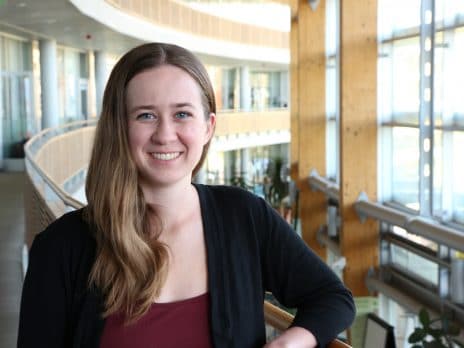
Samantha Hershauer, Undergraduate Research Assistant Accordion Closed
I am currently a Junior at NAU majoring in biology and minoring in chemistry. As a member of the Ancient DNA Core, my projects start in the Ancient DNA Lab, where I handle and extract DNA from sensitive samples, and finish at the Pathogen and Microbiome Institute (PMI), where I amplify gene targets of interest. My main project uses ancient DNA genetic techniques to determine when key species arrived into Alaskan ecosystems. In the Ancient DNA Lab, I handle and extract DNA from samples taken along Alaskan lake sediment cores. I then bring my work to PMI to PCR-amplify and sequence gene targets of interest so I can determine which organisms left behind their DNA. This line of work is relatively new and is developing into a significant tool for understanding past ecological communities. In addition, I perform Species from Feces genetic assays with the Bat Ecology and Genetics Lab. The aim of Species from Feces is to serve as a noninvasive method of tracking bats for conservation and management purposes by genetically identifying species that use roosts through DNA in their guano. I plan to continue research in genetics through graduate school and a PhD program.
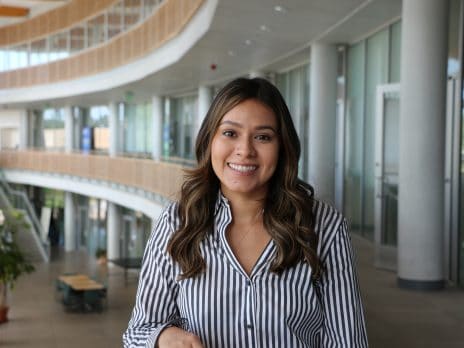
Samantha Lucero, Undergraduate Research Assistant Accordion Closed
My name is Samantha Lucero and I am an undergraduate student at Northern Arizona University aspiring to complete my degree in Biomedical Science with a minor in Psychology. I began working at Pathogen and Microbiome Institute (PMI) as an Undergraduate Research Assistant on March 11, 2019, under the supervision of Dr. Jason Sahl and Adam Vazquez. During my time at PMI, I have worked on a variety of projects, but my primary focus is on Clostridioides difficile amplicon sequencing. The significance of this project is to analyze selected genomic regions to identify and characterize unknown C. difficile in clinical and environmental samples in a more cost effective and rapid fashion than isolating or whole genome sequencing. These data can be used for source attribution and identifying antimicrobial resistant infections. My research experience at PMI has helped me become a more well-rounded individual, solidified my decision to pursue a career in the medical field, and helped me develop a better understanding of infectious diseases through my day-to-day tasks. After graduating from NAU, I plan to attend medical school and become a physician.
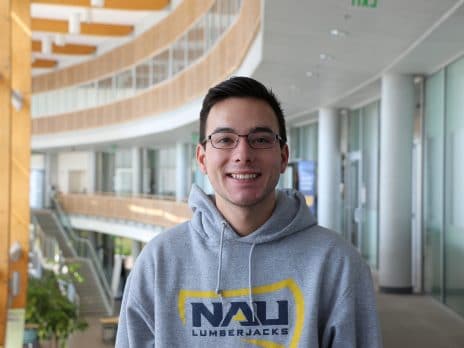
Samuel Poidmore, Undergraduate Research Assistant Accordion Closed
I am currently pursuing a degree in Biomedical Science with a minor in Chemistry. Since January 2019, I have been working as an undergraduate research assistant at PMI under the supervision of Dr. Crystal Hepp, Dr. Viacheslav Fofanov, and Mrs. Jill Cocking. At PMI, my main research project focuses on whole genome sequencing of Streptococcus spp. isolates from the oral microbiomes of children with dental carries. This is carried out by culturing the isolates and extracting DNA using various extraction techniques. Through sequence analysis of Streptococcus spp., we are able to better understand the causative agents of dental carries in children across the nation and improve clinical treatment and prevention. Working at PMI has allowed me to explore my interests within the field of microbiology and simultaneously develop outstanding professional relationships. After the completion of my undergraduate degree, I plan to attend medical school and pursue a career as a physician.

Vanessa Coyne, Undergraduate Research Assistant Accordion Closed
My name is Vanessa Coyne and I am currently a senior at NAU pursuing a Bachelor’s in Microbiology and a minor in Chemistry. I started working at PMI in late June of 2019. At PMI, I work under the direction of Dr. Bridget Barker who is an expert in Coccidioides spp, which are soil-dwelling fungi responsible for Valley fever. I also work closely with Dr. Patricia Mongini who focuses on the immune system’s B lymphocytes (B Cells) and the transition to B-CLL, the most common leukemia in adults. My primary project is to investigate whether chronic lung exposure to Coccidioides may accelerate B-CLL development and/or growth. The study is being conducted with a novel transgenic mouse strain (Eμ-TCL-1). I also work closely with an attenuated strain of Coccidioides which is used in my aforementioned project. Another aspect of this project requires me to identify the ideal conditions at which it grows as well as provide a stock for other projects in the Barker Lab Group. After graduation, I hope to matriculate into a Post-Baccalaureate program to help me establish what form of research I would like to do before continuing with graduate school.
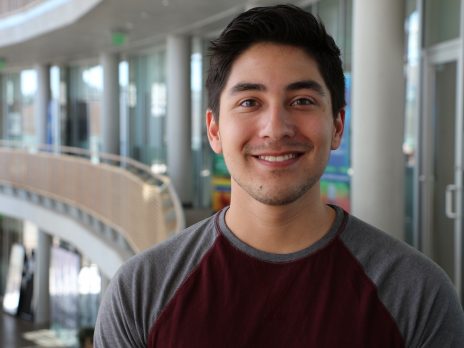
Vidal Martinez, Undergraduate IT Assistant Accordion Closed
I am currently in my third year pursuing a degree in Computer Science. My work at PMI is focused around computer maintenance and support. I am responsible for maintaining hardware inventory, setting up workstations and printers, installing needed software, and keeping The Pathogen & Microbiome Institute website up to date. My undergraduate work here at PMI is helping me to better understand computer hardware and network domains while also improving my time management, problem solving skills, and attention to detail.
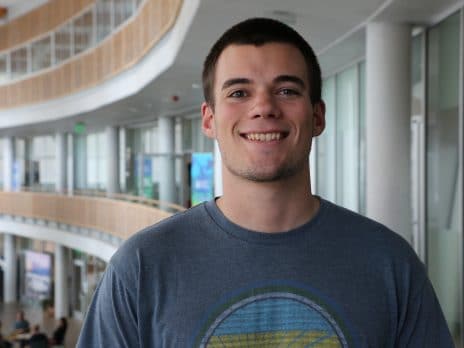
Zane Fink, Undergraduate Research Assistant Accordion Closed
I am currently a junior pursuing a Bachelor’s degree in Computer Science. My research with Dr. Jason Ladner involves designing algorithms and software for the creation of synthetic oligonucleotide (oligo) pools. These oligos will ultimately be used to conduct high-throughput serological assays, which will be used to elucidate an individual’s viral exposure history by probing for antiviral antibodies in peripheral blood samples. Because the dataset of all sequenced proteins from viruses known to infect humans is so large, we have developed a pipeline that allows for efficient, multi-stage clustering of viral protein sequences, where each cluster is then processed as an instance of the weighted set-cover problem. The goal of this software is to find the minimum number of oligos that cover up to 100% of the input data’s component epitopes. As a Computer Science student, bioinformatics research is interesting because the large datasets require you to think about optimization and algorithmic efficiency. After graduation, I plan to continue my education and research in a computer science graduate program.